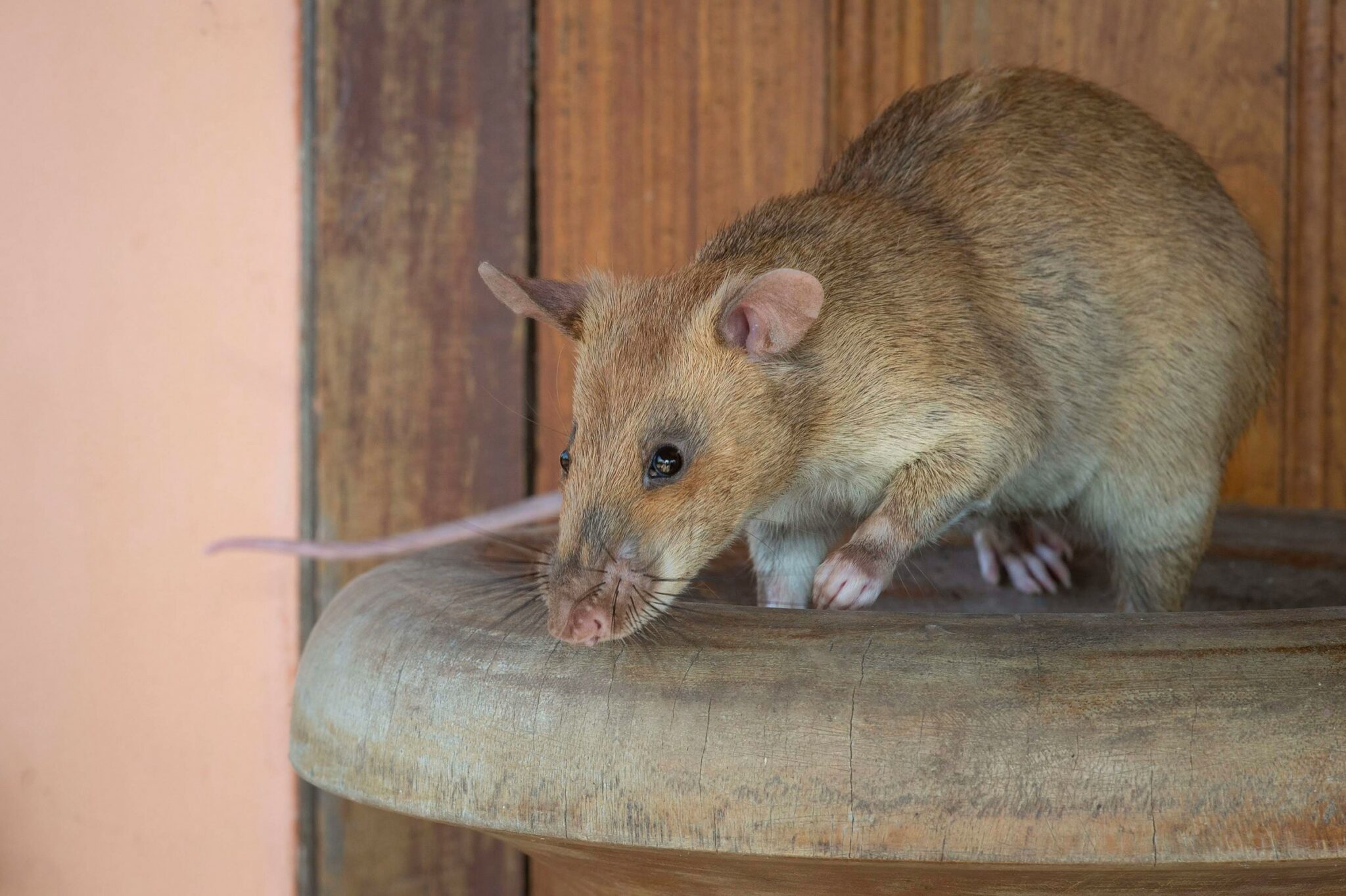Can our African giant pouched rats be trained to detect COVID-19?
As COVID-19 continues to spread, these are challenging times for us all. Right now, we’re doing everything possible to sustain daily operations and provide services to our community. While there’s a lot of uncertainty, we know that we need to adapt fast to our changing reality. We’ve been receiving a flood of questions from around the world on COVID-19 and whether our HeroRATs could be used todetect the virus, so we thought we’d share our most frequently asked questions and answers with everyone.
Can HeroRATs smell people infected with the novel coronavirus?
Generally speaking, APOPO’s rats can be trained to detect anything that has a unique odor-profile. While there is not currently any evidence to suggest that the virus (or samples from patients) emits a unique odor, it is quite likely that it does. Indeed, there are some reports of dogs already undergoing training to find COVID-19.
How long would it take to train APOPO’s rats to detect COVID-19?
APOPO’s experience suggests the rats would require around 3 months minimum to reliably detect a new disease target. This training would require thousands of confirmed positive AND confirmed negative samples. For 3 months of training, this would ideally involve a minimum of 4,800 samples with around 480 confirmed-positive.
How much would it cost to train the rats?
Costs would heavily depend on sample procurement and diagnostic materials, while training expenses alone could be minimal. Making use of APOPO’s existing facilities and well-established procedures to safely handle infectious material, rat training could be accomplished for around €10,000, depending on the total number of rats to be trained.
How and where could the rats be deployed for this work?
The APOPO Training center is based in Morogoro, Tanzania where, at the time of writing this, only 88 cases have been confirmed, far below the minimum number needed for training the rats. Given the global nature of the pandemic, as well as changing travel restrictions in response to country lockdowns, it seems unreasonable to assume that samples could be shipped internationally in order to meet the positive sample prevalence of 10% out of thousands of total samples needed for effective rat training. Likewise, the same travel restrictions would pose challenges for international deployment of trained rats, making it difficult to send our rats to other countries as a global COID-19 diagnostic tool within the next 6 months.
What is the need for a scent detection test / why rats?
Molecular assays (real-time PCR) are a reliable and accurate method to detect the novel coronavirus. An increasing number of kits are available on the market with approval for emergency use. Current efforts focus on making tests more rapid (e.g., within 15 or 45 min as reported for some new products), creating high-throughput systems, and developing home tests (not yet approved). In other applications, APOPO’s scent detection rats have proven to be fast, capable of high throughput, and at low cost. It remains however unknown whether scent-based diagnostics (underlying volatile organic compounds) would meet accuracy of molecular assays.
Our Unshakeable Hope
As an organization that serves some of the world’s most vulnerable communities, we have a duty to continue our humanitarian missions, with a priority for the safety and wellbeing of our staff and the families that depend on us. We are adjusting how we work in line with the latest national government and World Health Organization (WHO) guidance to keep working as much as possible while ensuring we keep everyone safe. We are also exploring ways that our expertise and capacity can help support the global COVID-19 response.
Standing Together
We are grateful for the continued support of all our donors and partners in these uncertain times. With your support we continue to fulfil to the best of our ability the humanitarian mission and values we all share, while keeping our staff, their families, and the communities we serve, as safe as possible.

